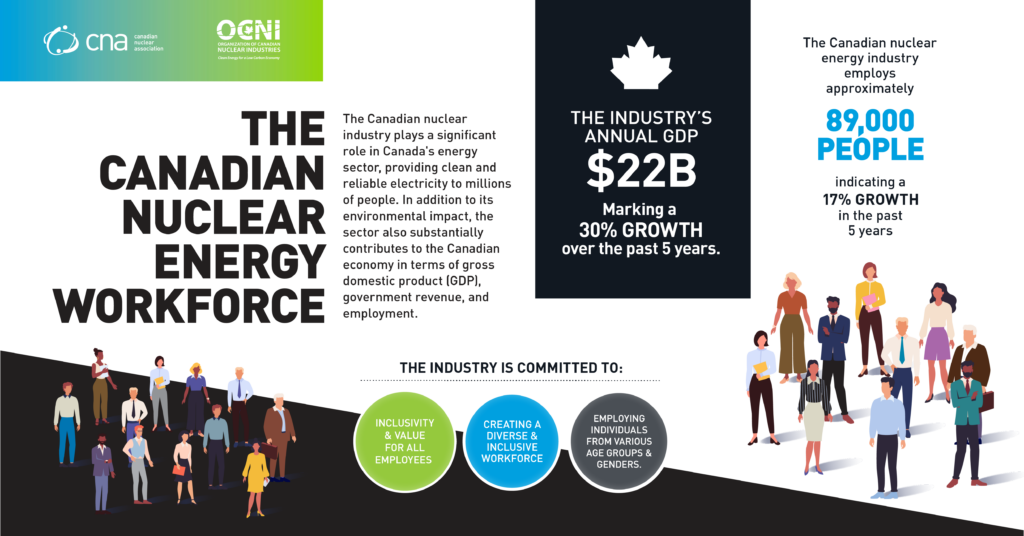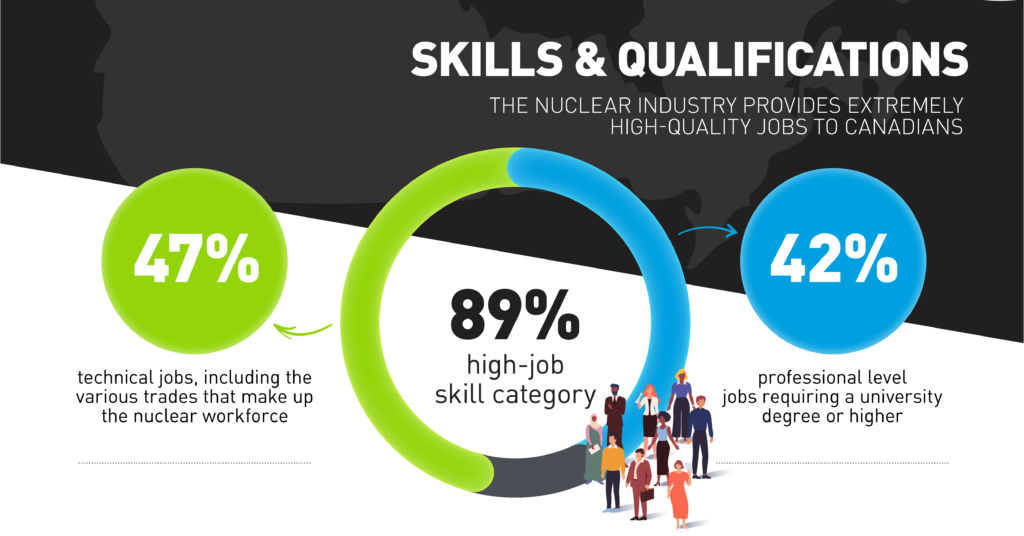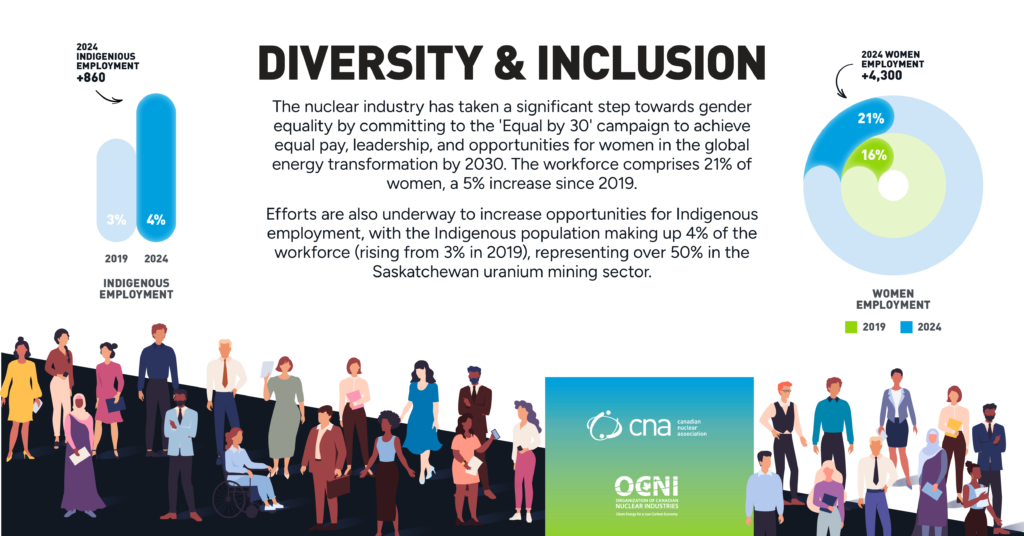Jobs and the Economy
Canada’s nuclear industry is an economic engine, offering high-quality jobs to skilled individuals, and revenue for provincial and federal governments. The industry also has excellent potential for growth.
Jobs in Canada
The Canadian nuclear industry plays a significant role in Canada’s energy sector, providing clean and reliable electricity to millions of people. In addition to its environmental impact, the sector also substantially contributes to the Canadian economy in terms of gross domestic product (GDP), government revenue, and employment.
The industry has experienced remarkable growth, with an annual GDP contribution of over $22 billion, marking a 30% increase over the past five years. This positive trend reflects a promising future for the industry and the Canadian economy.
As of 2024, the Canadian nuclear energy industry employs approximately 89,000 people, indicating a 17% increase over the last five years.
The industry is dedicated to creating a diverse and inclusive workforce and is committed to employing individuals from various age groups and genders. This not only broadens the range of skills and experiences but also fosters a sense of inclusivity and value for all employees.

Diversity of jobs in the nuclear energy sector
Canada’s four operating nuclear plants in Ontario and New Brunswick employ a diverse set of people, including control-room operators, engineers and technicians. However, the industry’s supply chain spans the country. Mining operations, mainly in Saskatchewan, require not only miners, but also metallurgists, analysts and many other professions and trades. Milling and refining operations in Ontario require precision operations, as do the manufacturers of parts for nuclear reactors, located across the country.
The nuclear industry provides extremely high-quality jobs to Canadians, with approximately 89% falling into the high-job skill category. The nuclear industry is also one of the most regulated in the world. Both provincial and federal governments employ a host of inspectors and health and safety specialists. These workers ensure that every aspect of operation — from mining to storing spent fuel — keeps our land and our people safe.

A large cohort of nuclear workers is nearing retirement, which offers excellent prospects to young, skilled individuals seeking vibrant careers.

“Building a workforce that is diverse and motivated takes leadership, commitment, time and effort. It is definitely worth all that, as the staff is the single most important asset any nuclear organization has,”
– Margaret Doane, IAEA Deputy Director General and Head of the Department of Management.
The Canadian nuclear industry understands the significance of fostering a workforce that is equal, diverse, and inclusive to support nuclear development. It emphasizes the necessity for the nuclear workforce to reflect the communities it engages with and serves. This focus on diversity ensures that every individual feels valued and plays a vital role in the industry’s success.

Growth projections
Supplying 15 per cent of Canada’s electricity is the basis for stable careers in a fascinating field. But the nuclear industry does more than keep the lights on, and it has projections for an exciting future.
Increasing concern about climate change is making zero-emission nuclear power more attractive than ever, both to Canada and to countries we export to. Moreover, a new generation of small modular reactors is imminent and could see a surge of new applications for Canada’s many remote communities and off-grid industry projects.

